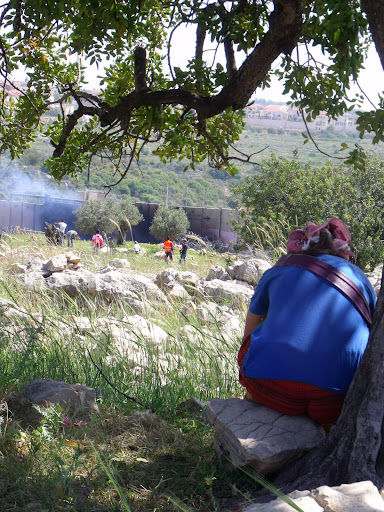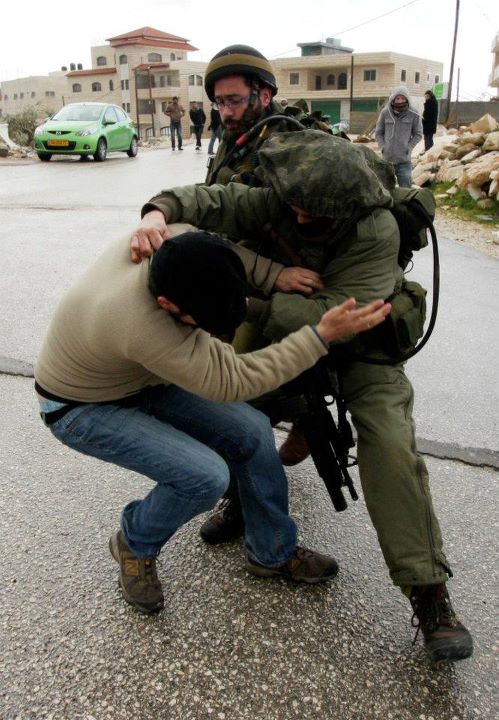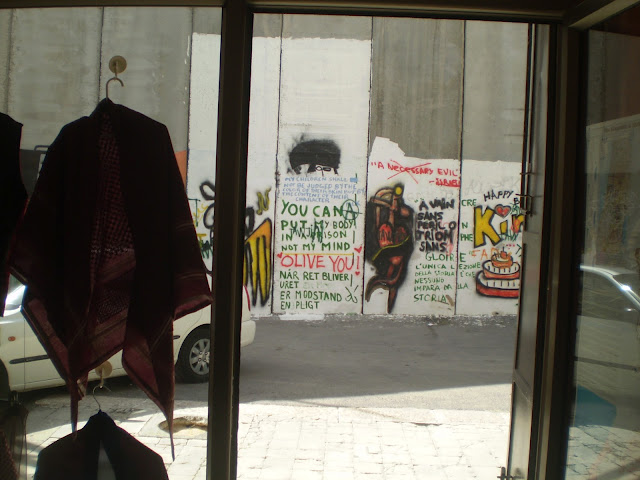Tag: Apartheid Wall
-
Spring time in Ni’lin: Photos of the demonstration
by Maxine Kaufman-Lacusta 6 April 2012 | Refusing to be Enemies: The Book I’m a bit slow at writing things up, so in the meanwhile, here are some photos of this past Friday’s action in Ni’lin. To me the the most vivid pictures were the shebab, including boys who looked as young as 12 , symbolically…
-
In Photos: Bethlehem met with rain of Israeli violence
by Mahmoud Zawahre 16 March 2012 | Al Ma’sara Popular Committee Today the weekly demo of Al-Ma’sara, near Bethlehem, was underway as dozens of Palestinians and Israelis demonstrated in the heavy rain against the wall in solidarity with Hana Shalabi . Israeli Occupartion Forces first attacked Mahmoud Zawahre, the coordinator Of Al-Ma’sara Popular Committee, tearing…
-
The isolated corner
by Axel 15 March 2012 | International Solidarity Movement, West Bank In the outer part of Bethlehem very close to Rachel’s Tomb, Mariam (who wishes not to use her actual name) runs her small Palestinian souvenir shop. But this is not a shop in the usual touristic places of Bethlehem, and not a place you…



